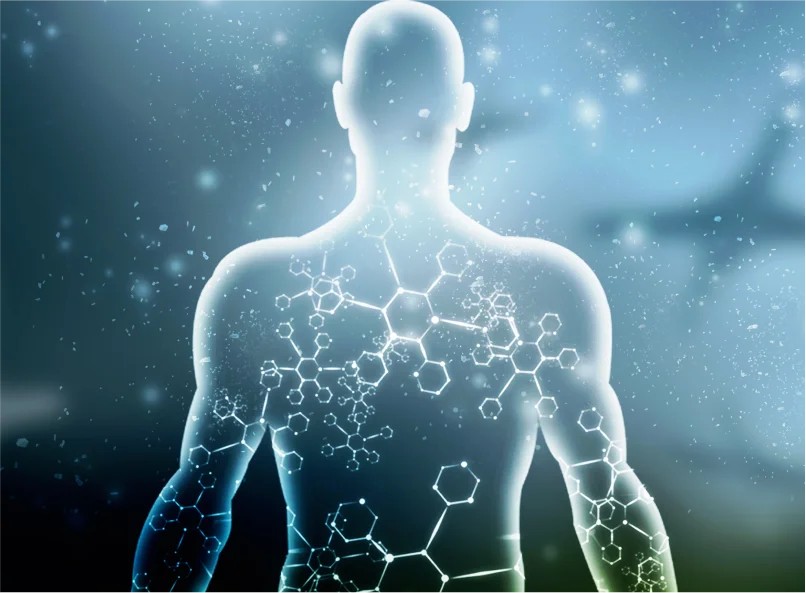Autoimmune Disorders
Autoimmune disease is on the rise all over the world. More and more people are being diagnosed with an autoimmune disease daily.
Toxic environments, poor quality food, and high amounts of stress are all contributing factors to this epidemic. Unfortunately, these conditions can be difficult to diagnose and even more difficult to treat under the standard medical practice. Once a diagnosis has been made, which can take years, a patient is given medication to mitigate symptoms but no real solution.
While all of these conditions present with different symptoms, they all stem from a few underlying conditions. Only so many things can go wrong in the body that can cause it to break down and dysfunction – toxins from our environment and food poison our blood and cells; pathogenic bacteria in the gut, such as candida and parasites, cause inflammation and impair the immune system; hormonal imbalance from stress damages the nervous system and brain. How the body expresses these dysfunctions is different for everyone.
Symptoms of Autoimmune Disorders
Fatigue
Abdominal
pain
Joint pain
and swelling
Recurring
fever
Skin problems
digestive
issues

When treating autoimmune diseases, we go to the underlying condition first. Until these root causes are addressed, the disease will not resolve itself. We take a systematic approach to heal these underlying conditions and reverse the disease.
Our step-by-step process analyzes every possible factor that could have contributed to the current condition and addresses them all. This is the most comprehensive method for managing and treating autoimmune disease.
Crohn’s Disease
When the bowel is inflamed.
“I always have diarrhea. After each meal, I have painful abdominal discomfort
and I sometimes have blood in my stools.”
If you have Crohn’s disease, you may be evacuating up to 20 times a day. Often symptoms in addition to diarrhea such as fever, loss of appetite and loss of weight, nausea, and vomiting can go along with it. In this disease, certain parts of the bowel become inflamed, but not the entire bowel. The lower part of the small intestine, as well as the colon, are the areas most affected.
In the case of Crohn’s disease, toxins accumulate in the gastrointestinal tract. Each person is different and so each person’s Crohn’s disease symptoms vary. We take a systematic approach to heal these underlying conditions and reverse the disease. Our step-by-step process analyzes every possible factor that could have contributed to the current condition and addresses them all. This is the most comprehensive method for managing and treating autoimmune diseases.
Ulcerative Colitis
When the colon is inflamed.
“I have diarrhea, painful abdominal cramps dominate my life and I often have blood in my stools.”
Recurring attacks of diarrhea, intestinal bleeding as well as stomach cramps, and intense bloating characterize this inflammation in the colon. The urge to evacuate is often uncontrollable – there can be up to 40 evacuations daily, so it’s quite understandable that fatigue and weakness are often seen as major symptoms.
In the case of Ulcerative Colitis, toxins accumulate in the colon. Each person is different and so each person’s Colitis symptoms vary. We take a systematic approach to heal these underlying conditions and reverse the disease. Our step-by-step process analyzes every possible factor that could have contributed to the current condition and addresses them all. This is the most comprehensive method for managing and treating autoimmune disease
Hashimoto Thyroiditis
When the thyroid quietly disappears.
Only when I became very nervous and irritable did I decide to see a doctor.”
Almost all people when first diagnosed with Hashimoto thyroiditis are surprised to find that they have this auto-immune disease. The immune system attacks the thyroid gland without those affected noticing anything. The thyroid is chronically inflamed. More and more of the hormone-creating cells that govern the activity of the entire metabolism quietly disappear. As a counter-reaction, the thyroid may at first create too many hormones. The symptoms at this stage are sweating, a feeling of restlessness, and insomnia. Only in later stages of the disease do signs of an under-functioning thyroid become noticeable. Weight gain, constipation, dullness, and increased need for sleep mark the end stages of the destruction of the thyroid gland.
In the case of Hashimoto’s Thyroiditis, toxins accumulate, especially in the thyroid. Triggers such as stress worsen the disease. However, each person is different and so each person’s Hashimoto thyroiditis symptoms differ. After an in-depth consultation, a comprehensive treatment plan is individually tailored for you. Your personalized health plan to treat your Hashimotos’s thyroiditis will be an emphasis on the elimination of toxins as well as calming a hypervigilant nervous system. Nutritional recommendations according to your genetics along with specific herbal mixtures tailored to your genetics, the thyroid, and your immune system support a balanced lifestyle. In this way, your natural self-healing abilities can lessen the destruction of thyroid tissues.
Don’t let Autoimmune Disorders control your life any longer
Holistic Care for a Variety of Health Conditions

Fatigue
Often fatigue has a lot to do with the Adrenals; two small glands that sit on top of your kidneys. The purpose of your Adrenal glands is to help your body cope with stress and survive.

Insomnia
Sleep disorders can wear you down. When the regeneration of the night’s sleep isn’t sufficient, you can suffer from impaired concentration, lack of memory, lack of motivation, depression or irritability.

Anxiety
When fear is a constant companion. Anxiety is a condition marked by excessive worry, fear, or nervousness that can interfere with daily activities and overall well-being.

Menopause
Menopause is not a “disease” but a natural transition that women go through as they age. Normally occurring in a woman’s 50s, menopause literally means the cessation of menstruation.

Weight Loss
Weight gain obviously has diet as a factor, however, it’s not just about what food you are putting in your mouth, but how your body is processing that food.

Skin Issues
The skin is the largest organ on the body, and is a direct reflection of our internal environment. If your body is inflamed, your skin may present with a variety of conditions.

Digestion Issues
Digestive disorders have been given many names in Allopathic Medicine, but they all essentially relate to one thing: The Microbiome

Autoimmune disorders
Autoimmune disease is on the rise all over the world. More and more people are being diagnosed with an autoimmune disease daily

Diabetes
Diabetes is one of the most common problems in the United States today, with over 26 million Americans affected. This disease disrupts all aspects of human physiology
